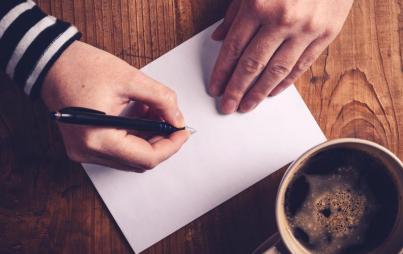
Shortly after Hurricane Harvey devastated much of the Texas Gulf Coast, I spoke with Anara, a friend who lives in Houston. Harvey had barely missed their neck of the neighborhood — they’d been lucky. “Very lucky,” Anara said. She told me about the knock at their door from an emergency evacuation team, the scramble to get all three of her young children dressed, to pack a small backpack, to try and remember what mattered most. It’s a particular kind of stress — the life-or-death kind that cannot be anticipated or prepared for — and it can have long-term mental health consequences, especially for the economically disadvantaged.
“All I could think was ‘I have to hold on to Vivi, I have to hold on to Vivi, I can’t lose her.” Vivi is Anara and her husband’s one-year-old daughter. “The boys will be okay, if they get lost, they can probably survive. But I can’t let go of Vivi.”
She spoke of friends who had lost everything, their homes and possessions completely destroyed. “But they’re alive and safe, that’s the important thing, right?” I asked.
Anara agreed, but she wouldn’t minimize the brutal reality of seeing your home — your dearest material world — demolished. “You cannot imagine,” she said. Of their less “lucky” friends, some had moments that Anara described as “breakdowns” — shaking, crying, irrational, totally without control.
Anara and her family are lucky in another way — they have the resources to temporarily stay elsewhere, to find a safe and stable place to regroup, process, heal.
For economically disadvantaged victims of natural disaster, navigating the aftermath can be as much a struggle as surviving the original hurricane, tornado, wildfire, etc.
“It's almost like a concussion — if you are continuously hit with new stressors after the initial stressor, it makes it much harder to heal.” That’s according to psychologist Jean Rhodes.
In 2003, she and her research team from the University of Massachusetts, Boston, worked with parents in New Orleans who had enrolled in community college. After Hurricane Katrina hit, they were able to track the mental health of their study’s subjects with before-the-storm data that provided unique insights on how a natural disaster impacts humans in both the short and long term.
As Rhodes points out, how a person recovers in the immediate aftermath of a natural disaster is crucial. And the ability to secure a safe place is often determined by economic status. Those with means can usually drive or fly out of town, book a hotel room, move into a short-term rental.
Those who are economically disadvantaged don’t always have such a big menu of options. And that can lead to serious mental health risks.
For instance, people who stayed at a shelter during Hurricane Katrina and Hurricane Sandy were more likely to develop PTSD (Post-Traumatic Stress Disorder) than those who stayed with family or friends. Women in general are also at greater risk of PTSD, as are children and the elderly.
One positive finding is that most survivors demonstrate healthy resilience following a natural disaster. There are even some whose mental health improves after the experience, a phenomenon known as post-traumatic growth. Rhodes explains that some people gain a new perspective, “see new possibilities,” undergo a kind of “spiritual awakening that psychologists have begun to appreciate comes often hand-in-hand with post-traumatic stress.”
You Might Also Like: How Do You Ever Heal When Life Keeps Punching You In The Face?
That’s the good news. The bad news is that up to 20% of natural disaster survivors will suffer serious and/or long-term hits to their mental health.
The best way for those who want to help economically disadvantaged victims get mental health help is probably to donate to the Red Cross. They’ve received so many applications from health and mental health providers, they’re actually unable to process more at the moment. That seems a good indication that mental health professionals are on the ground in Texas and Florida, and hopefully Puerto Rico as well. Their Donate Page lets you specify which areas you want to help — California wildfires, Hurricane Harvey, Hurricane Maria, etc.
It’s also crucial that we be supportive of those who have suffered.
Sure it is, ultimately, “most important” that everyone’s alive. But that’s a cheap and unhelpful platitude to throw in the face of someone who’s just lost everything else.
Thank you to Anara for gently reminding me of that.
Finally, it’s up to us to remember how many are still suffering, and demand they get the attention they need. In Puerto Rico, 80% of the island still lacks electricity, and a third still have no running water. Besides the immediate physical health risks such conditions impose, according to Rhodes’ research, hundreds of thousands of Puerto Ricans are now at long-term mental health risk. They desperately need the situation to stabilize so they can begin to recover. Call your representatives and demand American citizens in Puerto Rico get the supplies they need — to ensure physical well-being today, and protect against long-term mental health struggles.








